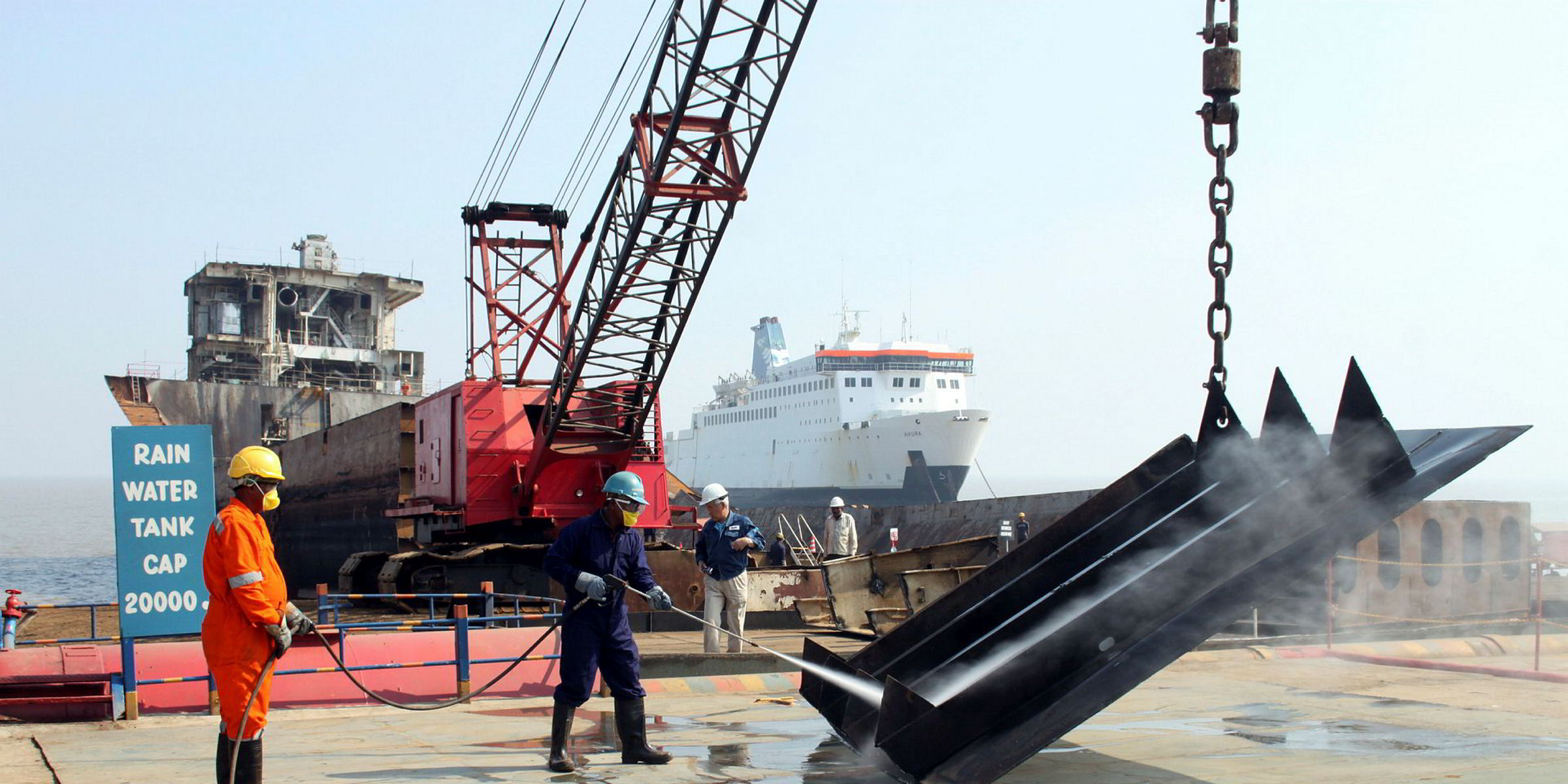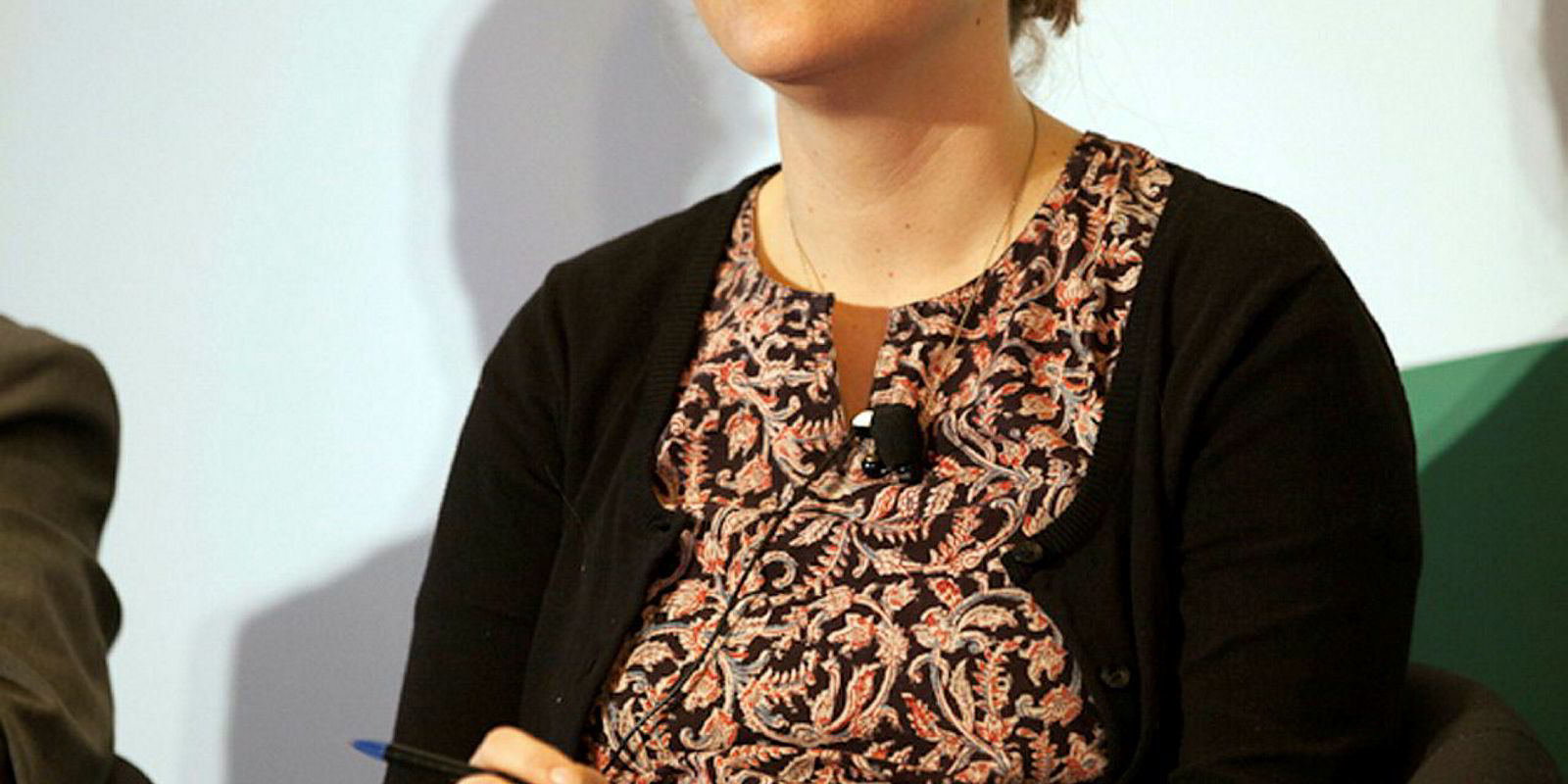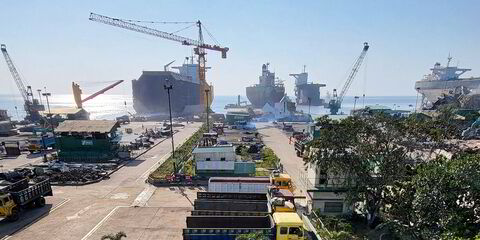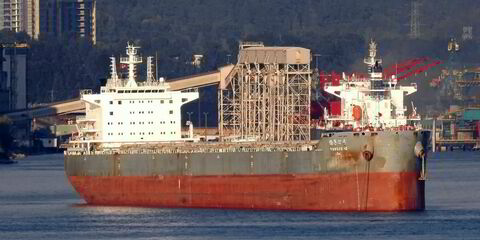The European Commission has agreed to inspect Shree Ram Vessel Scrap in Alang, India, with a view to including it in its list of approved yards under Europe’s Ship Recycling Regulation (SRR).
The move is significant because it suggests the EC is ready to consider the most advanced Indian beaching yards as acceptable to scrap European-registered ships, having previously indicated such recyclers would be ruled out.
The inspection also comes as the EC faces a potential shortfall of capacity to demolish the European fleet following China’s decision to withdraw from the international shipbreaking market.
One European recycler told TradeWinds: "China pulling out of international recycling has created many problems to the EC narrative on shiprecycling and has indirectly brought the Indian yards closer to the EU list."
Shree Ram, which has a statement of compliance with the Hong Kong International Convention for the Safe and Environmentally Sound Recycling of Ships from ClassNK, had earlier submitted an application to be recognised under the SRR.
Detailed description
The application included a detailed description of the recycling process as part of an initial desk review phase conducted by the EC’s Waste Management and Secondary Materials division.
Shree Ram’s desktop application has now been approved by the EC, meaning in principle it accepts the yard is capable of demolishing ships in line with the standards outlined in the SRR.
That will now be followed by a site inspection in September, where a final decision on whether the shiprecycling facility can be included on a list of approved yards will be made.
It is understood the site review will include Shree Ram’s plot numbers 78 and 81. It could also include plot number V-7 at affiliated shipbreaking yard RK Industries.
Until now, there are three main stumbling blocks for Indian yard applications to be recognised under the SRR. Firstly, the EC has always been sceptical that the recyclers can break down vessels without polluting the intertidal zone — the beach area between the tide and the concrete impermeable floor, where secondary cutting takes place.
However, Shree Ram has demonstrated it can prevent hull blocks from falling into the intertidal zone by using a combination of cranes positioned on the impermeable floor to break down the vessel from the bow onwards and floating cranes to demolish the ship from the stern.
It also uses magnetic slag collectors, which prevent any cutting debris from falling into the intertidal zone.
Workers' welfare
The other issue for Indian yards is the welfare of workers. Shree Ram provides workers with accommodation, which it says is in line with International Labour Organization standards, and also offers extensive safety training.
The final and most testing area is whether Shree Ram meets EC requirements for the downstream management of hazardous waste.
However, the Indian recycler was recently recognised as providing adequate environmental and safety standards by European shipping company AP Moller-Maersk, which has a strict corporate social responsibility programme on shiprecycling.
Maersk had formerly sent two containerships — the 4,306-teu Maersk Wyoming (built 1996) and Maersk Georgia (built 1997) — for demolition at Shree Ram. The Indian yard was chosen after an extensive audit by Maersk, when the Danish shipping giant decided to change its policy of demolishing ships only in Turkey and China.
Focus will now turn to whether the acceptance of Shree Ram will help the EC reach the 2.5 million ldt of capacity it estimates will be required to demolish the European-flag fleet following the scheduled enforcement of SRR from this December.
There is also the possibility that other Indian yards may be approved for site inspection.
Shiprecycling expert Nikos Mikelis recently estimated that if the EC relies on only European and US yards, following the withdrawal of China from the international market, it will fall well short of the recycling capacity required to handle the European fleet.
In a recent letter to TradeWinds, he said: “Unless China can be persuaded to remove its forthcoming ban on the import of ships for recycling, we have to expect that on 31 December, the SRR will be implemented with its list of approved yards having a maximum annual capacity of 530,000 ldt. This is just over one-fifth of the 2.5 million ldt that the regulation considers adequate."






